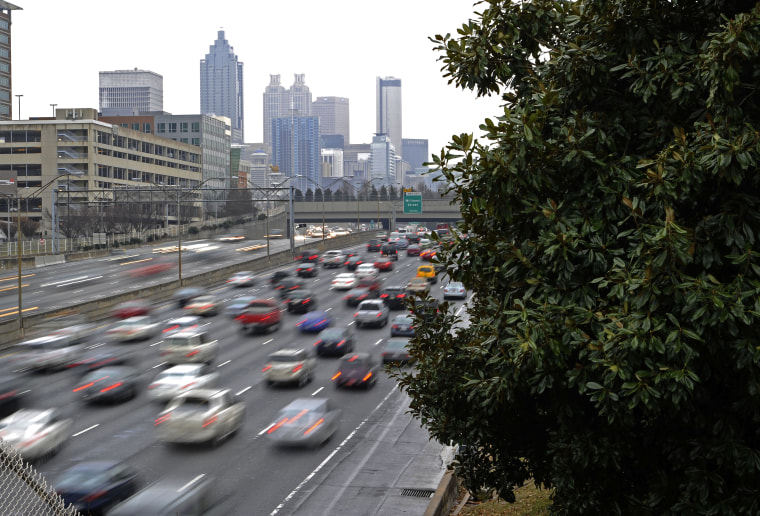Donald Trump hosted a surprisingly productive meeting with congressional Democrats this week, and the result was an agreement in principle: federal policymakers will move forward with a plan to invest $2 trillion in American infrastructure.
By all accounts, the president told Dems his interest in the issue "may not be typically Republican," but he assured the opposition party of his seriousness. "I'll lead on this," Trump said.
Whether his party cares or not about the president's willingness to "lead on this" is another matter entirely. Indeed, GOP lawmakers did not participate in the talks, and as Politico reported yesterday, they're now vetoing the White House blueprint.
"The likelihood of that happening at $2 trillion -- just on the face of what I saw -- is pie in the sky," said Sen. Shelley Moore Capito (R-W.Va.). [...]"I don't see where the pay-fors will come from," said Rep. Mark Meadows (R-N.C.), one of Trump's closest allies on Capitol Hill."It's a tremendous amount," said Rep. Sam Graves (R-Mo.), the ranking member on the House Transportation and Infrastructure Committee. When pressed on whether a package that size would have a realistic chance of passing in Congress, Graves did not mince words: "No," he said, literally waving off the idea with his hand.
Senate Majority Whip John Thune (R-S.D.) added that to pass the GOP-led Senate, an infrastructure plan would need to be fully paid for. In practical terms, that creates a hurdle that will not be cleared: Republicans won't support tax increases, and Democrats aren't likely to approve $2 trillion in spending cuts to finance an infrastructure package.
All of which suggests there's one area in which congressional Dems and Donald Trump appear to be on the same page -- and it's an area unlikely to produce real results.
And while that's no doubt disappointing to infrastructure advocates, it's also worth stepping back to acknowledge the familiarity of the circumstances.
When Trump met with lawmakers on gun policy, he endorsed progressive goals sought by Democrats, only to be told by his party that Republicans would never go for those measures.
When Trump met with lawmakers on immigration, the exact same thing happened. In fact, as regular readers may recall, it reached the point that Republican officials insisted that the president not negotiate directly with Democrats, for fear that he might be "tricked" into endorsing proposals he wasn't supposed to like.
The same was true during the 2017 drama over health care, when it was an open secret that Republicans were terrified of the prospect of Trump negotiating directly with Democratic leaders. The fear, of course, was that the amateur president would sit down Nancy Pelosi and Chuck Schumer, he'd find their pitch compelling; and Trump would end up giving Dems everything they asked for.
This week, it apparently happened again, with the broad strokes of an infrastructure plan.
As important as the specific details of the various negotiations are, this track record raises an awkward question: what's the point of sitting down with Trump to discuss policy?
